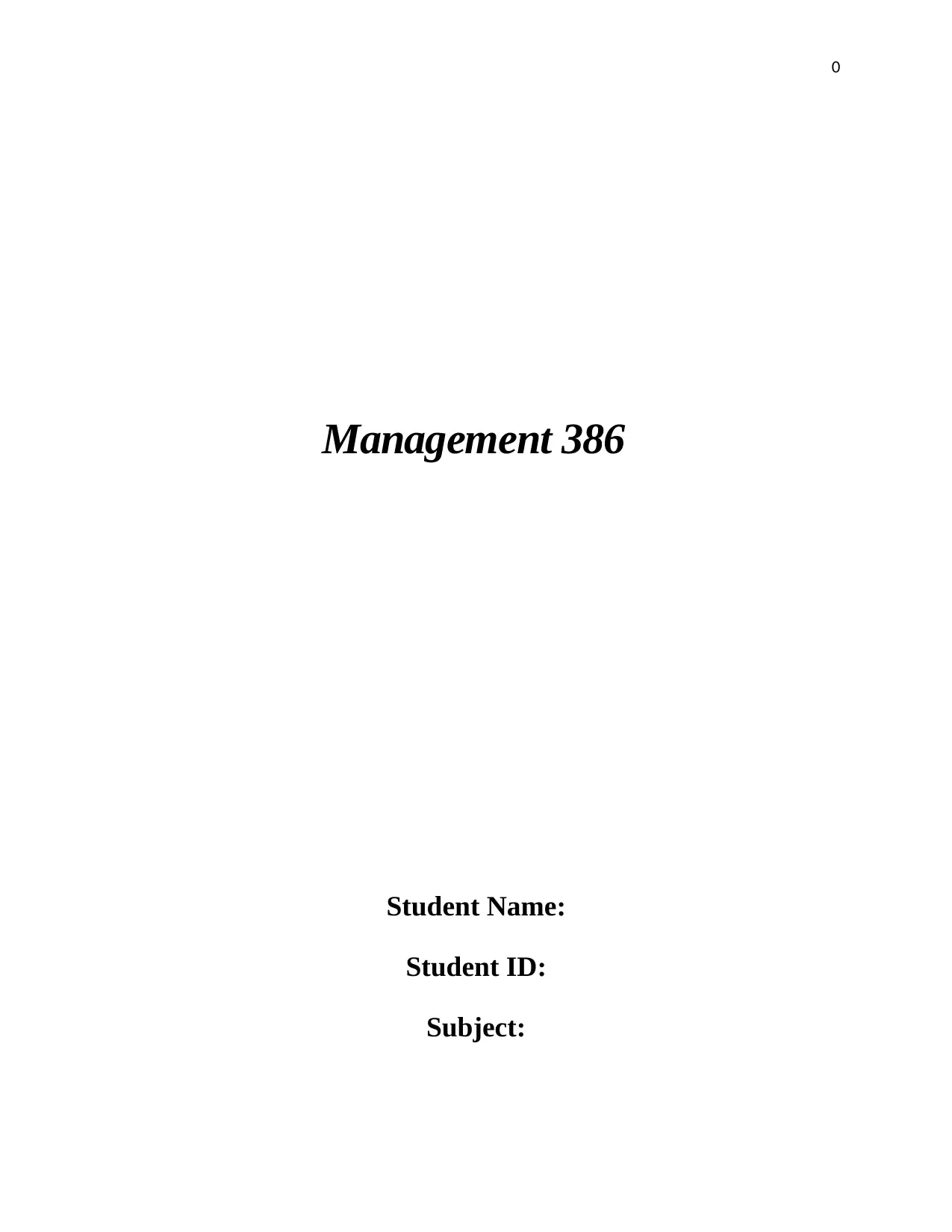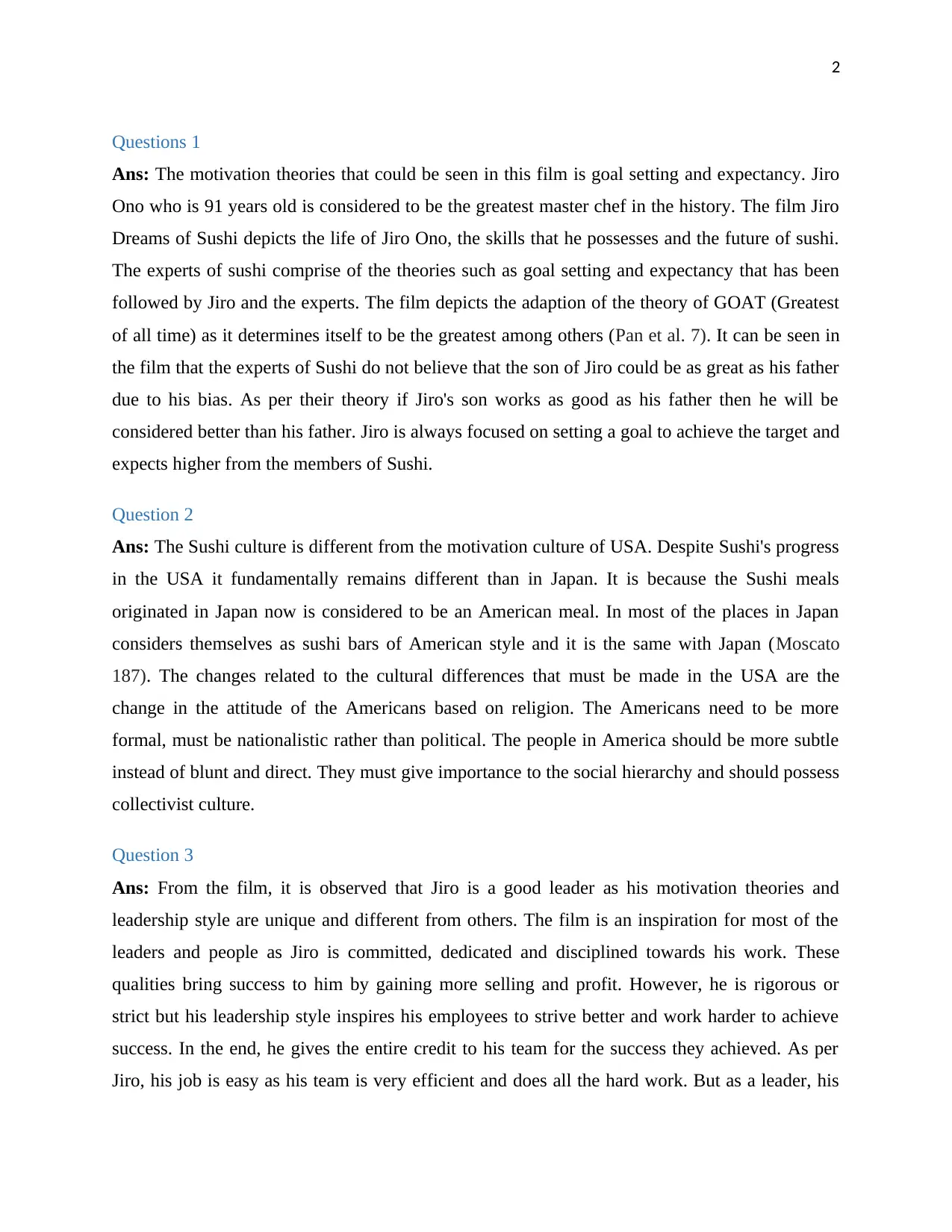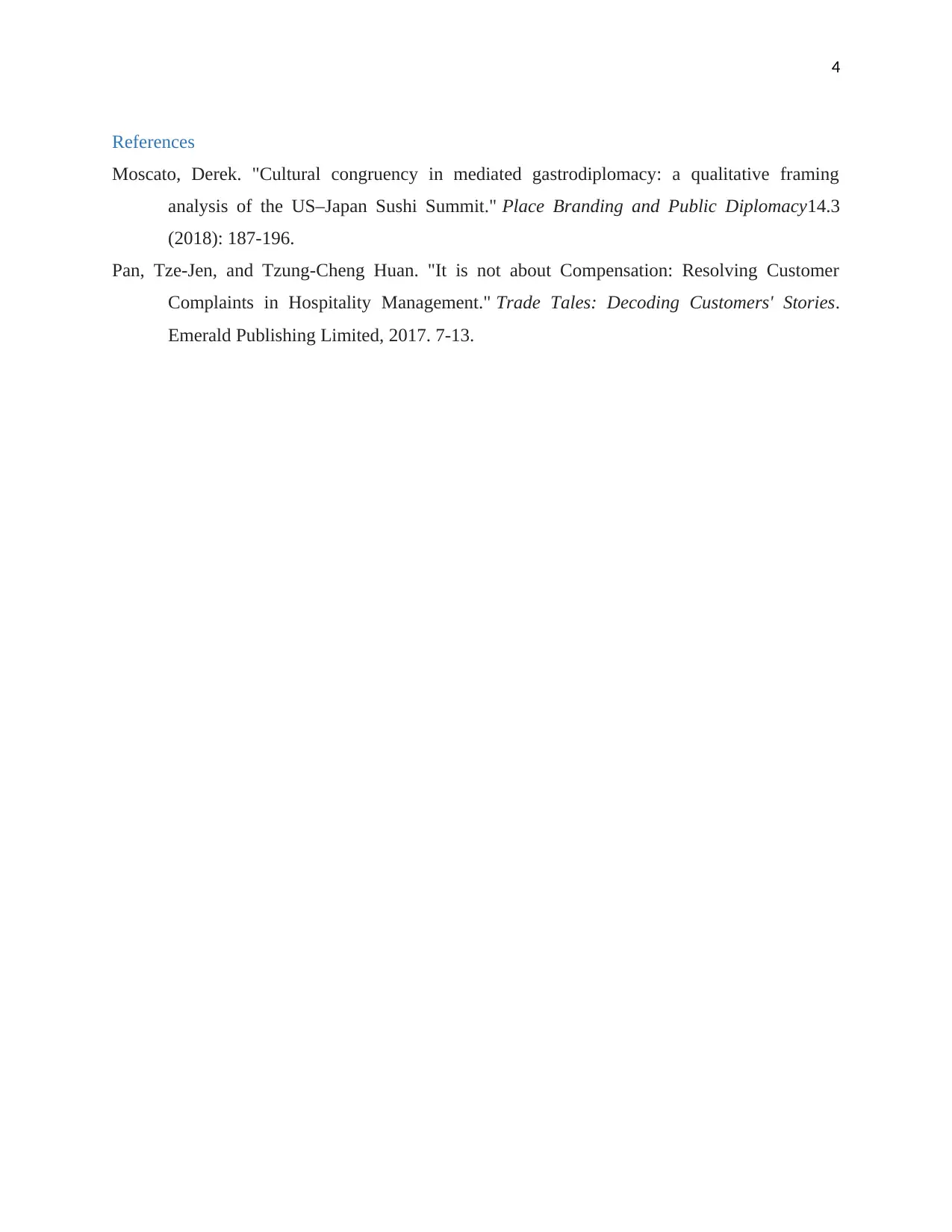Jiro Dreams of Sushi: A Case Study on Leadership and Motivation
VerifiedAdded on 2023/06/03
|5
|621
|108
Case Study
AI Summary
This case study analyzes the film 'Jiro Dreams of Sushi', focusing on the leadership and motivational aspects demonstrated by Jiro Ono. The study examines how Jiro's goal-setting and expectancy theories contribute to his success. It also compares and contrasts the sushi culture with the American work environment, highlighting cultural differences and adaptations needed. Furthermore, the analysis explores Jiro's leadership style, emphasizing his dedication, discipline, and the impact he has on his employees, concluding that his approach is both rigorous and inspiring, fostering a high-achieving team. The study references the works of Moscato and Pan, providing context and supporting arguments for the analysis.
1 out of 5






![[object Object]](/_next/static/media/star-bottom.7253800d.svg)